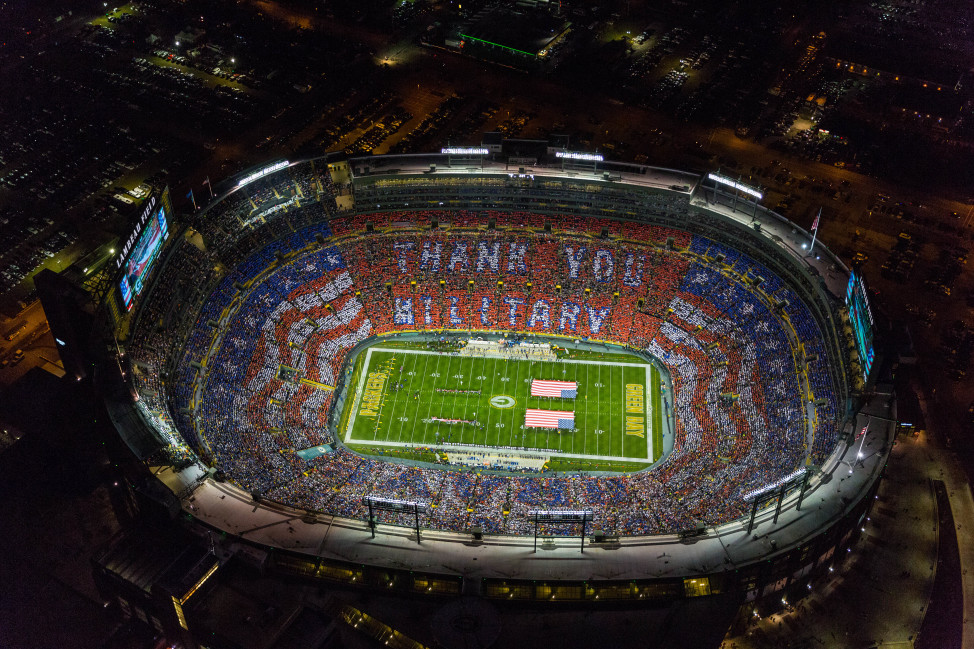
Fans hold up cards thanking veterans before an NFL football game on Nov. 9, 2014, in Green Bay, Wisconsin. (AP Images for USAA)
Today in the United States, it is not unusual for passersby to take the time to stop someone wearing a military uniform and thank them for their service.
As America commemorates Veterans Day on Nov. 11, the men and women who have fought her wars are generally embraced by a grateful nation.
And while that sentiment has usually been the case throughout America’s history, there was one glaring exception during the Vietnam era in the late 1960s and early 1970s.
“They were not treated right,” said Joe Lewis, communications director for the group, Veterans of Foreign Wars. “They were spit on. They were called baby killers. They were blamed for starting a war and then blamed for losing the war.”
Many returning Vietnam veterans were casualties of growing unrest and opposition to the war in American society. By contrast, their fathers who fought in World War II were hailed as heroes and are now called “the greatest generation”.
“America forgot how to separate the politics of war from the warrior fighting the war,” Lewis said. “People have to remember politicians start wars, politicians end wars. The military does their job.”
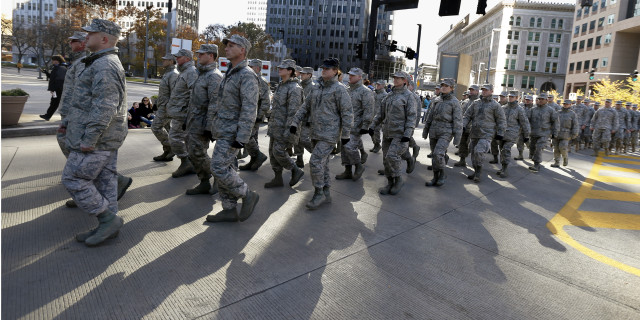
Military service veterans march in the Pittsburgh Veterans Day parade on Nov. 8, 2014, in Pittsburgh.
World War II was also different in that almost every American was impacted by the conflict in some way: either a loved one or someone they knew had gone off to join the fight.
By contrast, today many Americans are largely insulated from the country’s wars and the people who fight them.
America has had an all-volunteer army for 41 years, since 1973. Those service members currently make up less than 1 percent of the U.S. population. If you include the country’s 23 million vets, they still account for less than 10 percent of the overall population.
That difference is also apparent in the U.S. Congress, where about 20 percent of the nation’s lawmakers are veterans. That’s a marked change from the days when up to 75 percent of Congress, many of them having fought in World War II, were veterans.
Despite this increased isolation between service members and the general population, Lewis credits the lessons learned during Vietnam with the American public’s current predisposition to treat veterans with respect, even when opposing the conflicts in which they serve.
Today’s Iraq and Afghanistan veterans are coming home to a war-weary public that, while appreciative, worries about the returning warriors’ well being.
“There is great respect for all of America’s veterans but there is also an underlying concern that some of them might be broken because of years of war,” Lewis said.
It’s a perception Iraq War veteran Aleks Morosky encounters from time to time.
“People that initially have that impression,” he said, “once they get to know you a little, then it sort of challenges their assumptions and they’re usually kind of surprised by how normal you actually are.”
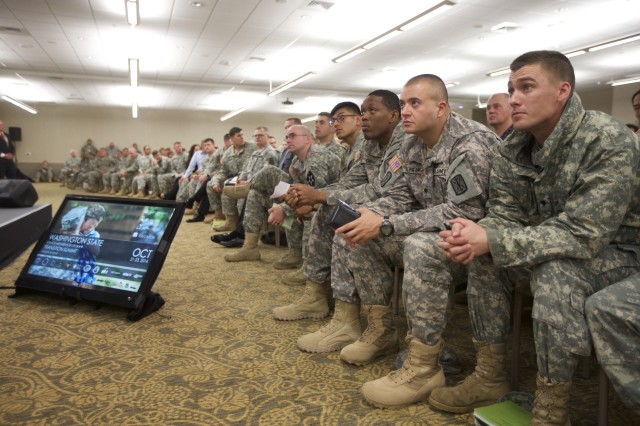
U.S. service members attend a jobs summit in Washington State on Oct. 22, 2014. (AP/U.S. Chamber of Commerce)
Adjusting to civilian life after six years in the military was one of Morosky’s biggest challenges.
“I was in [the military] from when I got out of high school to when I was 26 years old,” he said. “Being away from the military culture, where everything is very regimented, to having to learn how to sort of be more on my own…It can be difficult.”
The U.S. government helps ease that transition through the Servicemen’s Readjustment Act of 1944. Widely known as the G.I. Bill, the legislation offers college tuition assistance, help with low-cost mortgages and business loans, and unemployment benefits.
The G.I. Bill is administered through the U.S. Department of Veterans Affairs, which provides patient care and federal benefits to veterans and their dependents. The G.I. Bill has been updated over time to help meet the needs of the newest generation of veterans. G.I. benefits allowed Morosky to obtain a college education after he left the military.
While Veterans Day holds special meaning for current and former members of the U.S. military like Lewis and Morosky, many Americans simply view the holiday as a day off from work.
In reality, however, Nov. 11 commemorates an event that had a profound impact on American society and the world.
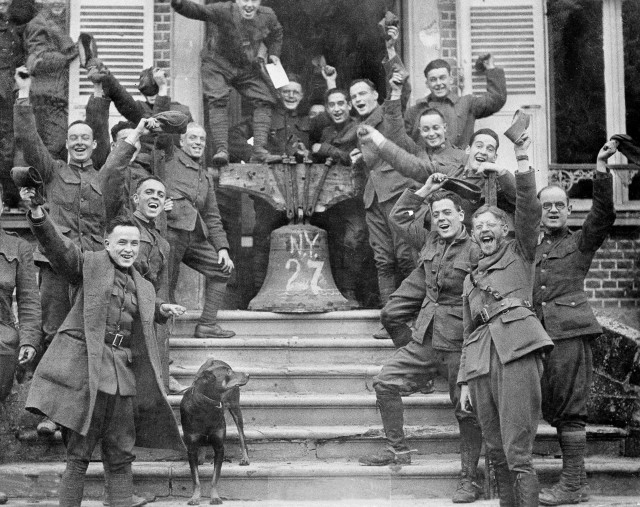
New York troops in Corbie, France, celebrate the signing of the Armistice Treaty, Nov. 11, 1918. (AP Photo)
What would eventually become known as Veterans Day, began in 1919, when U.S. President Woodrow Wilson proclaimed Nov. 11 as the first commemoration of Armistice Day, which marked the end of fighting in World War I.
The day originally honored World War I veterans. However, in 1954, a decade after World War II required the greatest mobilization of soldiers, sailors, Marines and airmen in the nation’s history, new legislation established Nov. 11 as a day to honor American veterans of all wars.
This Veterans Day, Lewis hopes Americans will take a moment to appreciate service members and the great American tradition that they continue to uphold.
“America was built on the backs of those who fought and died for their freedoms. If you look at the 56 signers of the Declaration of Independence, half of them took up arms to fight the British,” Lewis said. “Without the military, there would not be a United States of America.”

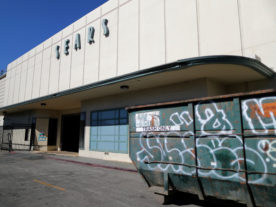
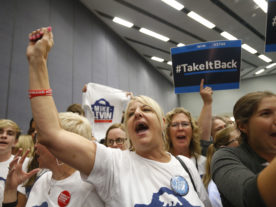
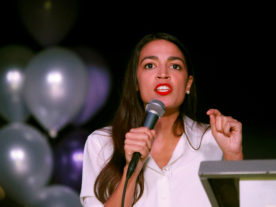

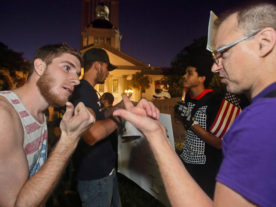

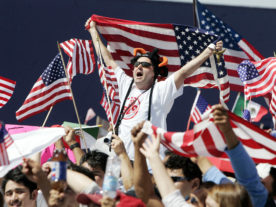
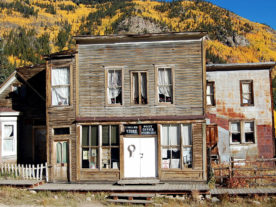
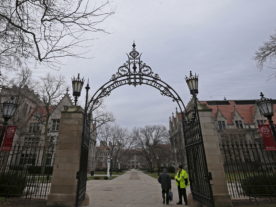

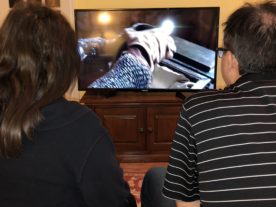
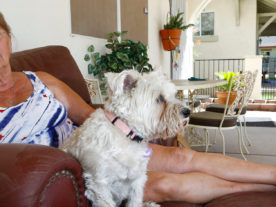




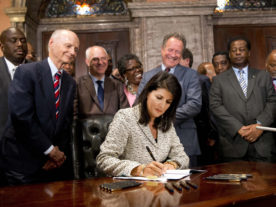

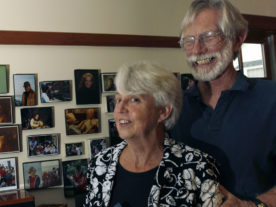


I served for 10 years, in two Branches of Service (Air Force, 1981-1985, Marine Corps, 1987-1993). My Father served in the Army during the Korean Conflict. I am very proud of my participation in the Armed Forces, and for my contribution in Operation Desert Shield/Desert Storm.
For all my Brothers and Sisters, in uniform or no longer wearing them, Thank you all, Semper Fidelis and God Bless.
huge fan mark my grandpa was in desert storm 2 and thanks for serving our country